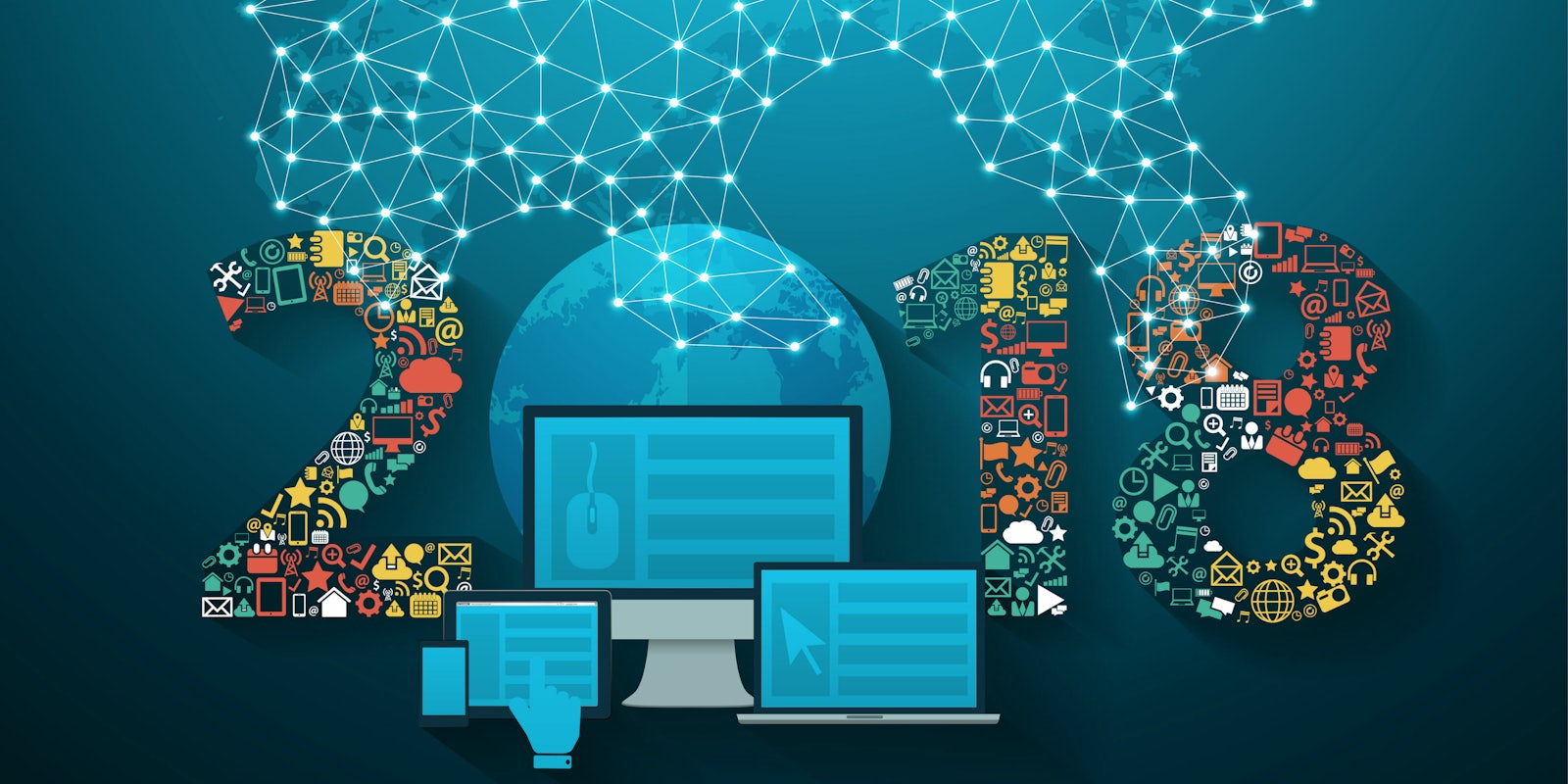It’s never easy to predict what will come next in the tech industry. Who could have guessed, for example, that robot voices would find their way into the homes of millions of people? Or that Uber would somehow end the year with an even worse image than it started with?
Fortunately, 2017 left us a trail of breadcrumbs to follow, and many of the things that ended the year on a high note will likely have a big influence on 2018. These are the topics the tech industry will revolve around for the next 12 months and the trends to watch at CES 2018.
Tech trends to watch in 2018
1. Bitcoin turns doubters into believers

The most valuable cryptocurrency saw tremendous growth in 2017 and is finally starting to win over institutions to become an accepted form of transaction. It was even the focal point of an episode of The Big Bang Theory. Bitcoin increased in value by more than 15 times this year. It topped the $1,000 milestone on New Year’s Day in 2017 and skyrocketed to just short of $20,000 in early December, turning early backers into millionaires and even billionaires.
Things are only looking up. The world’s largest derivatives marketplace operator, CME Group, just launched its Bitcoin futures market, allowing investors to predict the price of Bitcoin. It’s a move some analysts think will win over mainstream financial firms.
Even still, Bitcoin will likely hit some of the same roadblocks it dealt with in 2017: strong government regulation and concerning volatility. Will 2018 be the year the Bitcoin bubble bursts? It’s hard to say, but everyone will be keeping an eye on what’s sure to be a rollercoaster year.
2. Augmented reality apps go mainstream

The only major smartphone OS providers remaining, Apple and Google, are both bullish on augmented reality, and they’ve got new tools to help move things along. Both released in 2017, Apple’s ARKit and Google’s ARCore frameworks give developers what they need to quickly make high-quality AR apps.
Their efforts have already paid off. Massive corporations like Amazon and IKEA launched their own AR apps, some of which are genuinely useful. At the same time, companies like Magic Leap, Microsoft, and reportedly Apple are rushing to be the first to release AR glasses.
There’s no doubt we’re going to see a lot more of mobile AR in 2018. The real question is whether anyone will find the same magic that made Pokémon Go such a resounding success.
READ MORE:
- How to leave a group text message once and for all
- The best texting games to play when you’re bored
- The best speaker booster apps for iOS and Android
3. Social networks continue to struggle with fake news
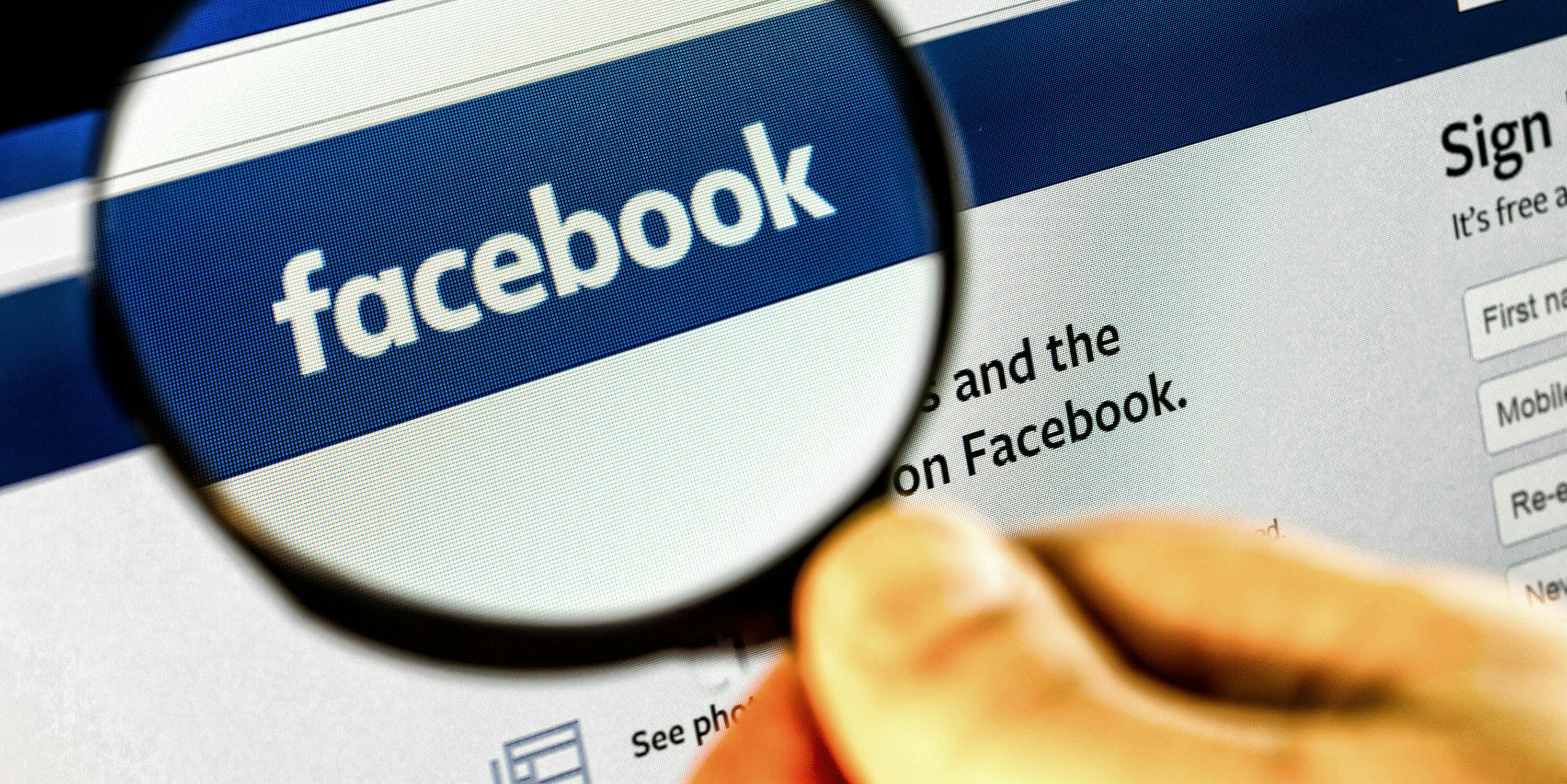
The U.S. midterm elections in November 2018 will be the first major test since social networks became aware that their platforms were exploited to spread misinformation during the 2016 election.
Facebook, in particular, has become a punching bag for criticism, and not without reason. In September, the company told congressional investigators that it sold $100,000 in ads to a Kremlin-backed troll farm. Those ads focused on controversial topics like gun rights, immigration, gay rights, and racial discrimination in an attempt to influence younger U.S. voters. Facebook’s admission came just a few months after Mark Zuckerberg said it was “crazy” to think fake news could have an effect on the election.
Facebook, along with Twitter, Google, and others, are now desperately looking for ways to prevent fake news—not just by Russia, but by a clan of trolls that roam the internet with little accountability. You should expect more features focused on preventing the spread of misinformation and lots of commentary on how well they’re working.
4. Self-driving vehicles accelerate toward the finish line
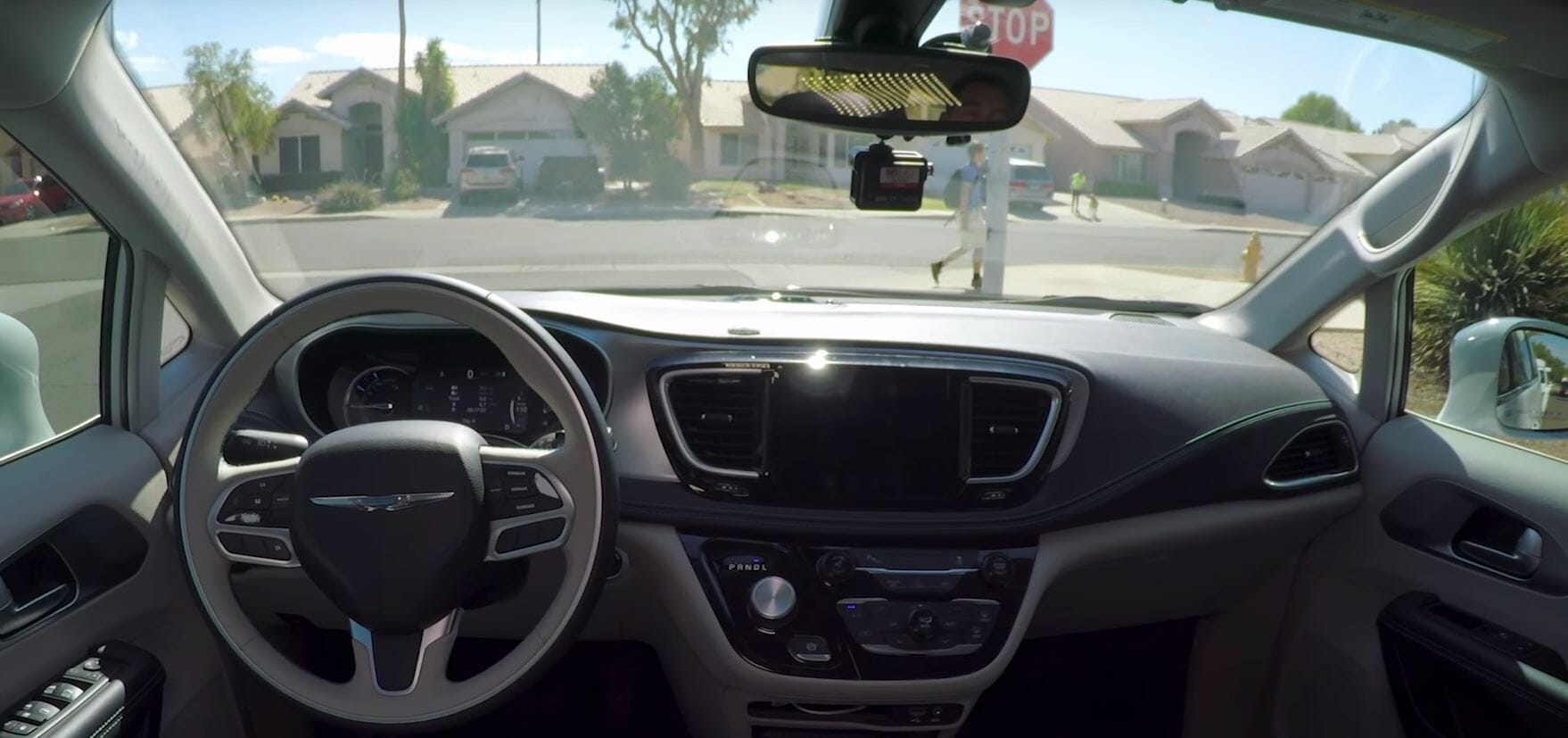
The race to launch the first self-driving car service will continue into 2018 as every major automaker and some of the biggest tech companies look to bring fully autonomous vehicles onto the streets. A few of the current front-runners include Alphabet’s Waymo, Tesla, Uber, GM, and Ford.
You won’t be stepping into your own self-driving vehicle in the next 365 days, but there will be big steps taken toward that goal. Waymo is reportedly readying a peer-to-peer service with a fleet of self-driving vehicles as it continues testing in Pheonix. Also investing in the technology are Uber, with its self-driving test facility in Pittsburg; Lyft, which has an autonomous fleet in San Francisco and Boston; and GM, the first to test self-driving cars in New York.
Meanwhile, every company involved is scurrying to form partnerships: Uber with Volvo, Fiat and BMW with Intel, and so on. We still don’t know what the final fully autonomous technology will look like, when it’s going to come, or who will be the first to release it, but we can say with certainty that it will be a hot topic for the next 12 months.
5. Smartphones add embedded fingerprint readers
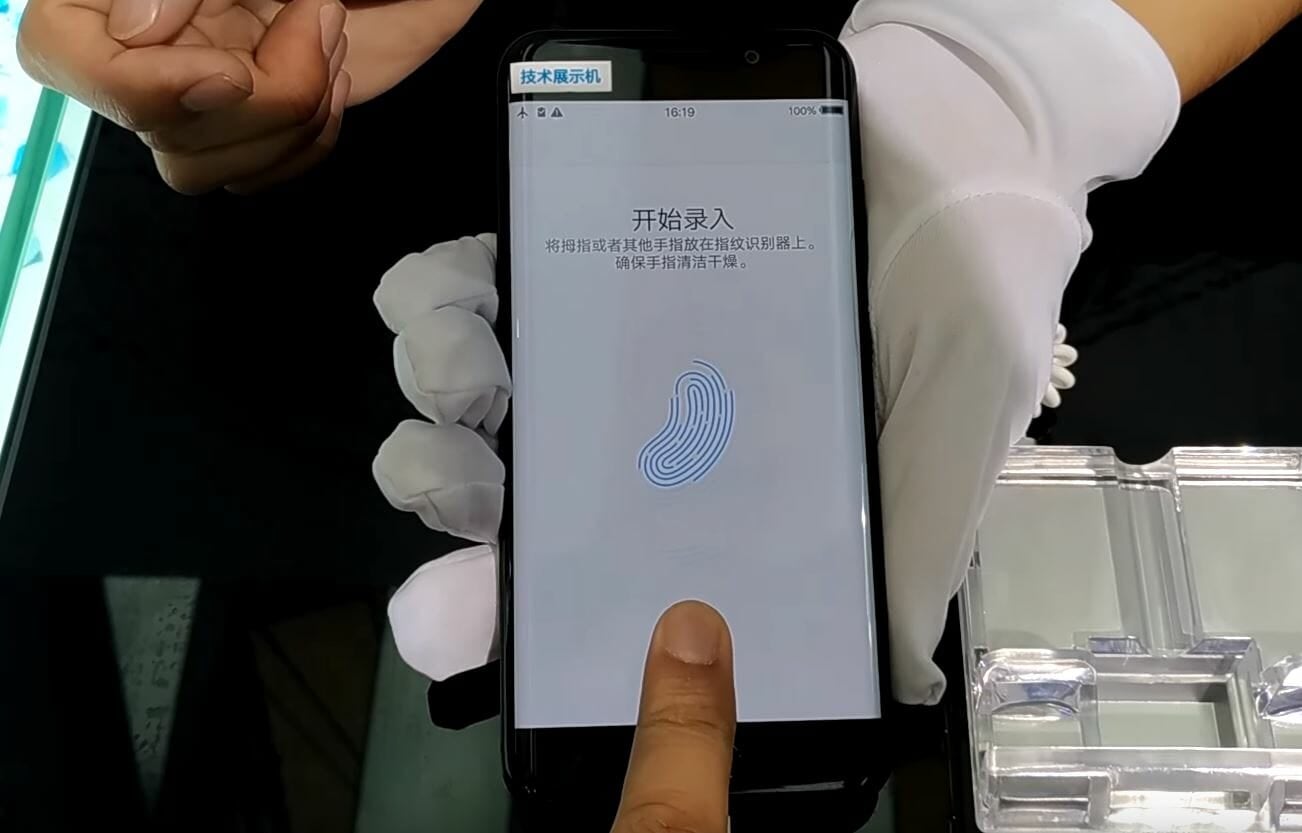
Every year it seems there’s one innovation that smartphone makers pitch to convince customers to update their old devices. Last year it was the edge-to-edge display, a genuinely fantastic feature that is worth paying extra for. I predict this year will be all about the embedded fingerprint scanner—sensors embedded under the display where the physical home button formerly sat.
Both Apple and Samsung were rumored to be implementing this type of sensor into their devices. However, neither could figure it out before the release of the Note 8 and iPhone X, respectively. Since then, Qualcomm demonstrated a sensor working under a phone display and later published a timeline showing when the technology would become available to manufacturers. Going by that, commercial devices made of glass and metal with embedded fingerprint sensors are expected in early 2018. Unfortunately, the latest rumors claim it won’t arrive on the Samsung Galaxy S9, the first major release in the new year.
The other big smartphone trend will be foldable devices, but we’re not ready to go there yet.
READ MORE:
- The best smartphones of 2017, ranked
- How to customize Control Center in iOS 11 to your liking
- The simple trick to using screen recording in iOS 11
6. Privacy and security woes only get worse

Cybersecurity fails have been the dominant trend of the decade, and it’s not going to get any better in 2018. In fact, it could get a lot worse. Every new Wi-Fi-connected product we put in our homes—speakers, appliances, wearable, etc.—is an appealing target for hackers hoping to steal personal information.
Businesses will also need to be careful. The Mirai attack in 2016 demonstrated how hackers could use a botnet to spread a distributed denial-of-service (DDoS) attack to compromise internet of things (IoT) devices. We can expect hackers to use the millions of new devices that go online in 2018, many of which lack security, to attack other systems.
We’re also starting to see more state-sponsored attacks from Russia and North Korea. The North Korea recently conducted numerous attacks to steal cryptocurrency. It was also publicly blamed by the U.S. government for the devastating WannaCry attack that spread ransomware to hundreds of thousands of computers around the world.
7. The Gig Economy gets regulated

Uber and Airbnb are the two big players in the gig, or sharing, economy. Both have recently been slammed with government regulations following incidents that raise concerns about the future of peer-to-peer services.
All eyes will be on Uber, which, despite having a bad a year from a PR perspective, is still the leader in ride-hailing. Its most recent setback came when the European Union declared ride-hailing a transport service, not an electronics service. The distinction is critical: It will force Uber to comply with regulations enacted by individual E.U. member states. Those rules could be much more restrictive than what is currently in place. It’s just one of many regulations Uber will need to overcome as it looks to recover from a disastrous 2017.
The same ruling could have a significant impact on Airbnb if the E.U. chooses to strip it of its current label. The peer-to-peer rental platform has seen its growth slow down because of government regulations. Local lawmakers could enforce stricter rules on the service if reports of spying on guests (and even murder) become more prevalent.
8. AI takes over your home
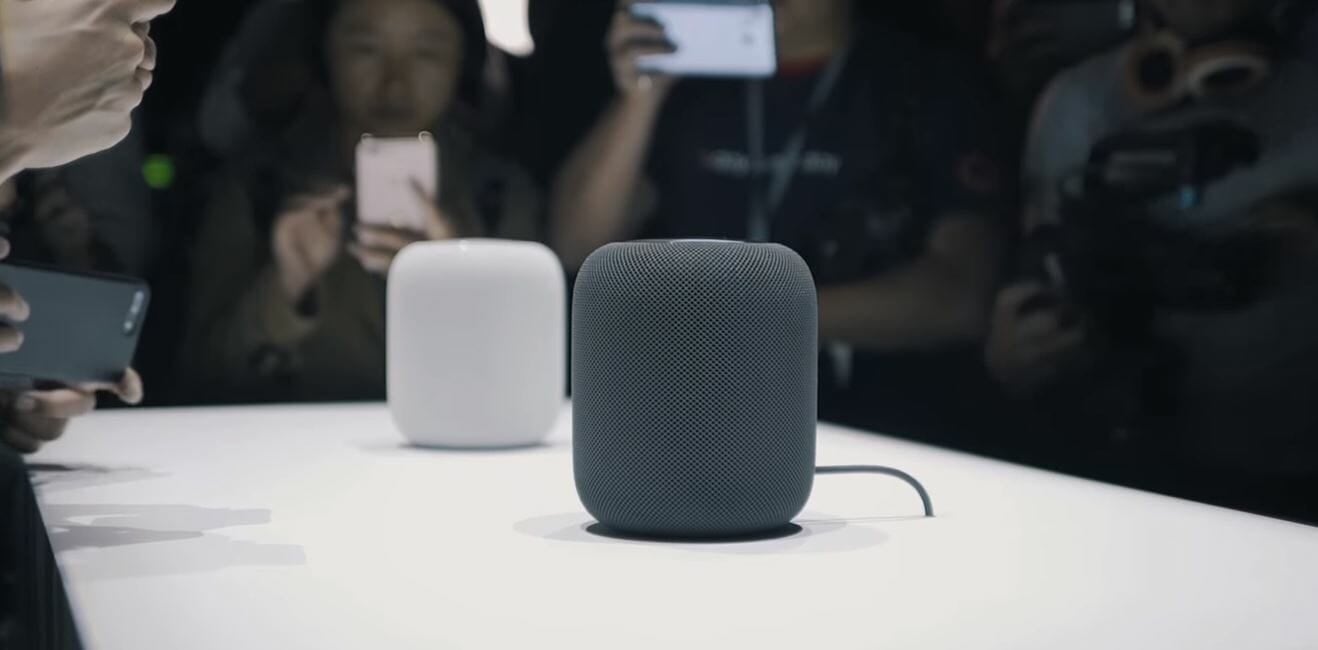
Even if you don’t own a voice-enabled smart speaker, you almost certainly have a device that can access one of the big three personal assistants: Alexa, Siri, or Google Assistant. These AI will continue to infiltrate more and more devices in 2018 as companies fight for your attention. Some confirmed examples coming in the new year include Apple’s Siri-enabled HomePod speaker and an unnamed Bixby-powered speaker from Samsung.
But it won’t just be about companies building products for their own voices. Third-party device makers will also fight for a piece of the AI pie. We’ll get our first look at all the creative ways companies can integrate these robots into data-collecting gadgets at CES in January.
It’s also worth mentioning other forms AI will take in 2018: cute robots, pets, and hyper-realistic humans. The public reaction to these machines will be of particular interest, as Sophie, the terrifying female robot that gained citizenship in Saudi Arabia, demonstrated last year.

